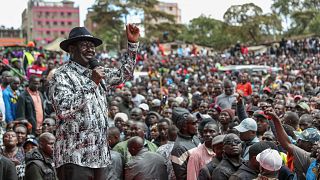Telecommunication
Google said on Wednesday it will invest $1 billion over the next five years to allow for faster and more affordable internet access and support entrepreneurship in Africa.
Internet reliability is a problem in Africa where less than a third of the continent's 1.3 billion people are connected to broadband, according to the World Bank.
But the continent, where nearly half the population is under 18, is a promising market.
According to Google and Alphabet boss, Sundar Pichai "huge strides" have been made in recent years, but more work is needed to make "internet accessible, affordable and useful for every African".
The investment will support digital transformation by ensuring improved connectivity and access, he said in a statement.
The funds will, among other things, go towards infrastructure development including the Equiano subsea cable that will connect South Africa, Namibia, Nigeria and St Helena with Europe.
The deal expands Google's pledge announced four years ago to train around 10 million young Africans and small-scale businesses in digital skills.
"I am of the firm belief that no one is better placed to solve Africa's biggest problems than Africa's young developers and startup founders," said Google's Africa managing director Nitin Gajria.
Internet access is also hampered by the affordability of smartphones.
Google said it will partner with Kenya's telecoms giant Safaricom to launch affordable Android smartphones for first time users.
The project will later be rolled out across the continent with other carriers such Airtel, MTN, Orange and Vodacom.











02:03
Africa’s freshwater fish under threat as stocks decline
Go to video
US federal government enters shutdown, raising fears of global uncertainty
01:12
White House says Trump supports renewal of African trade initiative due to expire
00:09
UN delegates use fashion to bring culture and tradition to global stage
02:31
Africa takes pride in hosting its first road cycling world championship
02:06
African leaders demand equity and UN reform, decrying marginalization